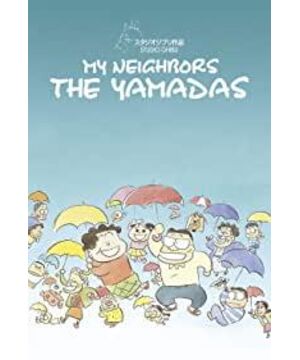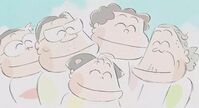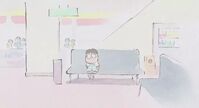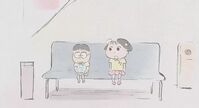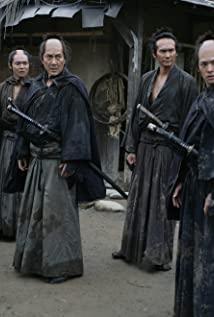Forgive my ignorance, if I hadn't read "The Wind of Ghibli" recently, I wouldn't have known "My Neighbor Yamada-kun".
There are three passages in "The Wind of Ghibli":
one:
The former chairman of Nippon TV, Saiichiro Shijia, quite liked the works of Isao Takahata, and considered "My Neighbor Yamada-kun" to be the No.1 of Ghibli's works. Suzuki asked, "Where do you think Mr. Takahata is good?"
"He just got me hooked!"
"What exactly do you love about him?"
The family thought for a while and replied:
"He has the lingering scent of Marxism!"
of two:
"The joys and sorrows of ordinary people are really trivial from the perspective of a bystander. But for the parties, every feeling is so real. As a person, this is actually the most fundamental, I think These feelings should be cherished as if they were sunshine.”
Three:
Takahata took three or four years to write the script for "The Tale of Kaguya Princess", which was originally three and a half hours long.
So on weekend nights, I found "My Neighbor Yamada-kun" and watched it immediately.
Yamada-kun is a middle-aged uncle in his 40s; this film work, which mixes trivial life, family troubles, hard work, classical background music, and haiku, would have been difficult if it weren't for Yamada-kun's age and situation. Totally empathize. But this does not prevent it from showing a form of life, and is repeatedly knocked down by cold humor. On the contrary, children are calmer than adults, and adults keep getting lost and talking strange logic; it seems that the older they get, the more trivial matters, the more chaotic their lives, and the less they can justify themselves, but then they suddenly wake up at a certain age. Stubborn. Does this also reflect the inevitable laws of life?
Maybe Yamada-kun is really like the neighbor who lives next door to you and me; on one side of the wall, I listen to music, write articles, the lighting is gentle, everything is quiet, and there is a lot of joy; on the other side of the wall, there may be a fight going on. TV remote control wars, or negotiating to buy lettuce, gherkins, ham, light bulbs, garbage bags.
The details of Yamada-kun's family's life are really scary, such as distributing the family's garbage into the trash can in the park, for example, after everyone eats wild ginger, they keep throwing it away; Yamada-kun also has lost dreams, and he doesn't understand justice when he was young How could the messenger's wish turn into the miserable and cowardly appearance it is now, so much so that he sat on the swing in the moonlit night for a long time, and at the end, it was accompanied by a haiku: "The cave, miserable, the cricket under the unicorn."
In a way, this is a somewhat indescribable film, and while the cold humor pervades, there is both warmth and loss in the details, the warmth is understated, and the loss seems profound.
Yamada-kun said a long paragraph at about one hour and thirty-two minutes of the movie:
Today is an auspicious day…
[…]
Life can be said to be full of unpredictable things.
Even though everything seems to be going well so far,
But suddenly, it will be pushed to the bottom!
Moreover, it is not someone else who pushes you, but the person you trust the most!
but…
The most important thing in life is to think...
[Everyone is stunned]
Thinking about it is the biggest secret to not being discouraged, frustrated, or mad when faced with any situation.
No matter how bad the other party's behavior is, as long as it is not out of malice, it can be tolerated as long as it is open to it.
No! You can't live without tolerance.
"No way! No way!"
This sentence is not only negative; it is absolutely indispensable;
It is the key to running a happy family, and it is also the key to facing life optimistically and breaking through difficulties.
[Everyone is stunned]
No matter how difficult it is,
Just chant it like a mantra,
"What can I do?" This seemingly negative sentence,
Should cheer up...
It's really hard to say what kind of effect these words with Ah Q's spirit can have; in any case, it's good to help Yamada-kun temporarily relieve the pressure. So after watching this movie, you may be silent: we adults, maybe we all understand, this is probably the truth of life; then, you may also casually say "then what else can we do?"
View more about My Neighbors the Yamadas reviews


